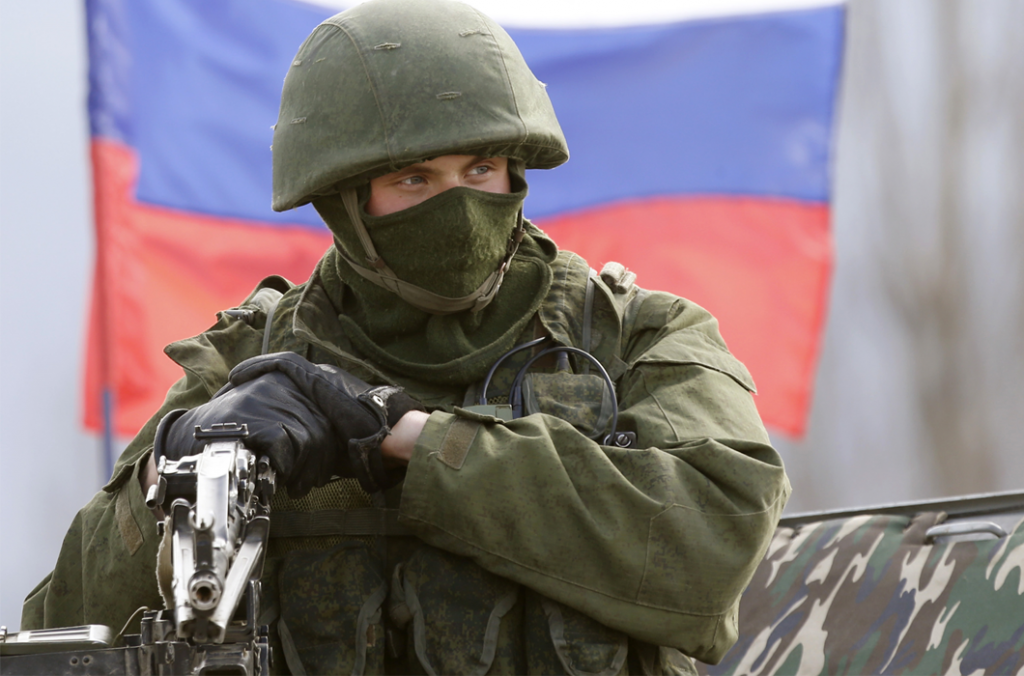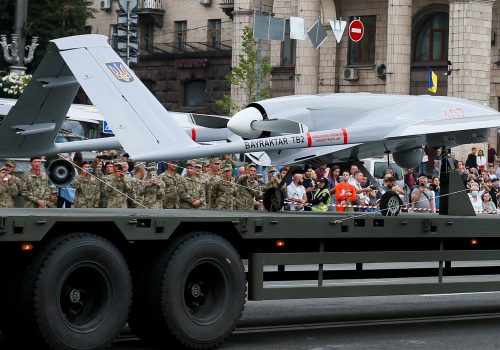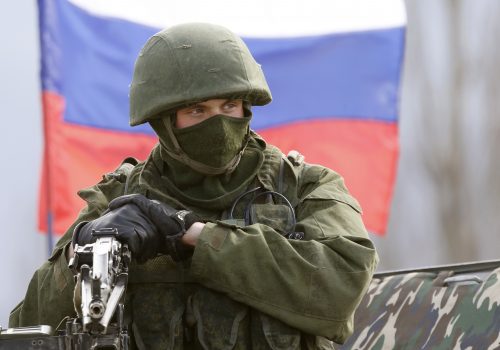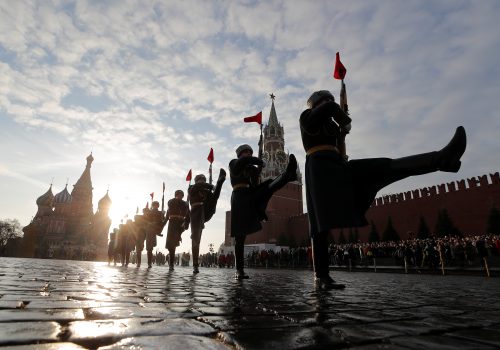FAST THINKING: Russia calls for a Cold War-style Europe. Will NATO give in?
JUST IN
They’re not asking nicely. With tens of thousands of its troops lined up along Ukraine’s eastern border, the Kremlin has publicly laid out demands that analysts say are aimed at restoring a Cold War-style European security order. The most contentious of these include a guarantee that NATO won’t admit any former Soviet republics—chiefly Ukraine—and an end to all military cooperation with those countries. While the United States and its allies swiftly rejected the demands, they also don’t seem to have quite figured out yet how to respond to Russia’s aggression. As tensions tick up on the eastern front, our experts break it all down for you.
TODAY’S EXPERT REACTION COURTESY OF
- Melinda Haring (@melindaharing): Deputy director of the Eurasia Center
- Chris Skaluba (@ACScowcroft): Director of the Scowcroft Center’s Transatlantic Security Initiative and former principal director for European & NATO policy at the US Defense Department
- John Herbst (@JohnEdHerbst): Senior director of the Atlantic Council’s Eurasia Center and a former US ambassador to Ukraine
Ransom note
- Have we just stepped into a time machine? “Welcome back to the days of Soviet bluster, maximalist demands, and intense pressure on Washington to sell out smaller states,” Melinda says, noting that the Kremlin asked for a meeting on its demands as early as tomorrow. “Moscow’s rush proposal wants to carve the map into spheres of interest yet again.”
- Chris points out that Russian President Vladimir Putin has long held these goals. But previous Russian invasions of Georgia and Ukraine, along with cyberattacks and other broadsides against the West, “have failed to bring North American and European allies to the [negotiating] table,” he says. “It is now obvious that the conventional military buildup on Ukraine’s border is trying to force the issue.”
- A “strong reaction” from US President Joe Biden to Russia’s troop buildup “has given Putin pause” about a full invasion, John tells us. So the Russian president is turning to “intimidation” instead. “These demands are not realistic, but Putin sees no risk in advancing them,” John says, as he’s seeking “some smaller concessions from Washington or Brussels” such as pushing Ukraine on autonomy for the occupied territories in Donbas or holding European security talks before Putin agrees to de-escalate.
Subscribe to Fast Thinking email alerts
Sign up to receive rapid insight in your inbox from Atlantic Council experts on global events as they unfold.

Talking about talks
- Biden has said he wants to hold a meeting with Russia and four NATO allies, which Melinda thinks is “a big mistake” since it leaves out Ukraine and the Baltic states. “Would it kill the White House to say no talks without our European allies and Ukraine? Ukraine gets to decide its future, not Washington or Moscow.”
- Chris says Biden’s openness to talks could be “a stalling tactic,” as a proper summit would take months to execute and push back a possible Russian invasion of Ukraine in the winter. But the Kremlin’s urgent demands indicate that “Moscow seems to be on to the gambit.”
- The draft treaty that Russia has proposed is thus “both a negotiating tool and a pretext for another invasion of Ukraine if Moscow judges the response from the West insufficiently rapid or sincere,” Chris says. “This a serious test for Washington and NATO, with the stakes of this crisis having been raised considerably.”
On the brink
- John figures that Putin “takes some comfort” from US unwillingness to send additional arms to Ukraine now—a move that “would have a deterrent effect” on Russia—and from reports that European governments are divided on imposing sanctions on Russia if it escalates militarily in Ukraine. “Washington in particular needs to understand that brinkmanship is second nature to Moscow,” John says, “but it holds the upper hand” because it is much stronger militarily and economically than Russia.
- By creating “a fake and avoidable crisis,” Melinda says, Putin is effectively telling Washington and Brussels “to get lost” from Eastern Europe. And after failing to deter the Russian leader during a video conference last week, Biden needs to raise his game, she adds: “It’s time to move NATO troops to southeast Poland and eastern Romania and for the United States to step up weapons transfers and ground and air exercises in western Ukraine.”
For in-depth analysis of the Ukraine crisis, join the Eurasia Center for a live event next week.
Further reading
Thu, Dec 16, 2021
Turkey could tip the balance in the Ukraine-Russia standoff
TURKEYSource By Matthew Bryza, Grady Wilson
Turkey is doubling down on defense cooperation with Ukraine via drone sales, while retaining cordial relations with Russia. How can Ankara's diplomacy play a role in this simmering conflict?
Sat, Dec 11, 2021
Memo to the international media: Putin has already invaded Ukraine
UkraineAlert By Peter Dickinson
One depressing aspect of Russia's latest military build-up on the Ukrainian border has been the flurry of headlines posing the same question: will Putin invade Ukraine? In reality, Russia has already invaded Ukraine and the war is now in its eighth year.
Tue, Nov 23, 2021
How to Deter Russia Now
UkraineAlert By
With Russian troops once more massing on the Ukrainian border, the United States and Europe must make clear to the Kremlin that they stand with Ukraine and will impose serious costs in the event of an offensive.
Image: Russian service members take part in tactical combat exercises held by a motorized rifle division at the Kadamovsky range in the Rostov region, Russia on December 10, 2021. Photo by Sergey Pivovarov/Reuters.



